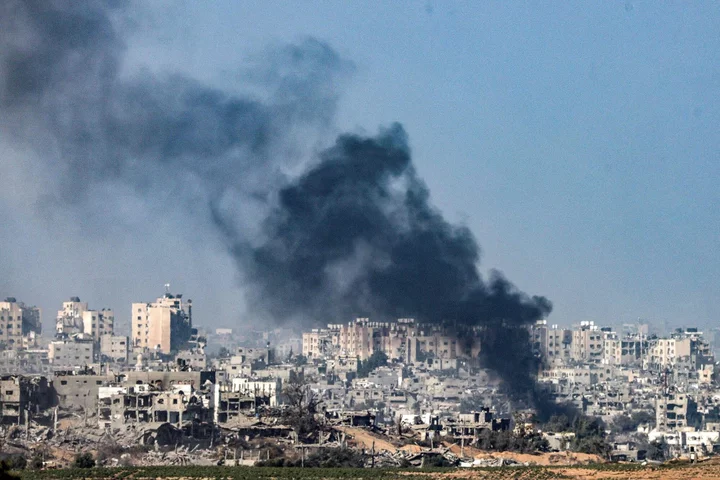The European Union is set to propose extending emergency rules linked to last year’s energy crisis after conflict in the Middle East and concerns about gas infrastructure security have presented new risks.
The 27-nation EU saw energy prices surge to record highs in 2022 after Russia, its former main supplier, curbed fuel flows in the wake of its war in Ukraine. To cut volatility and avoid backlash from voters, the bloc agreed a set of measures including a temporary gas price cap, joint purchases of the fuel and faster permitting for renewables.
Europe is currently better prepared for the winter but remains exposed to energy shocks, Energy Commissioner Kadri Simson told lawmakers in the European Parliament on Wednesday, adding that the coming months will be challenging and the bloc should consider prolonging the crisis tools.
“A crisis in the Middle East, with markets still fragile due to the effects of the Russian war, could have wide-ranging impacts,” she said. “Likewise, any incidents on key energy infrastructure may rapidly affect the sentiment of very nervous energy markets. This means that we must continue our diversification efforts and we must keep a vigilant posture, pursuing prudent policies.”
Read More: Europe’s Energy Crunch Will Trigger Years of Shortages
European natural gas futures earlier this week slumped to the lowest level in almost a month as ample fuel inventories and mild weather forecasts eased some concerns over winter supply risks. Still, the market remains tight and extremely sensitive to any changes in the availability of gas. That includes the recent US sanctions against Russia’s Arctic LNG 2 project, as well as technical issues at a major export plant in Australia, which led to the cancellation of a planned fuel cargo for this month.
Dutch front-month gas, Europe’s benchmark, jumped to as high as €47.81 a megawatt-hour on Thursday, although it’s only at a fraction of the emergency gas price cap set at €180.
Without a major supply shock, Europe should get through this winter comfortably, Gyorgy Vargha, Chief Executive Officer of Swiss trading firm MET International AG, said in an interview last week. However, prices can spike again if there’s a consistent cold weather coupled with risks to gas flows, he said.
Simson also urged the EU not to lose momentum on renewables. Growth for clean energy is key in the bloc’s ambitious Green Deal strategy to cut greenhouse gases by 55% this decade from 1990 levels and reach climate neutrality by the middle of the century. At the end of this month, she pledged to present an action plan to reinforce and expand power grids.
“It will include measures to address barriers, including regulatory, financial and permitting issues, and ensure better, smarter use of existing grids,” she said.
--With assistance from Elena Mazneva and Anna Shiryaevskaya.
(Updates with gas prices from fifth paragraph, additional quote in seventh paragraph.)

